Crohn's and Ray's son, one of the twelve Olympian gods. He ruled the world with his brothers Zeus and Hades; it was decided by lot that Poseidon would rule the foamy sea, Hades the kingdom of the dead, and Zeus the sky, while the earth and Olympus belonged to all three. Poseidon, although reluctant, obeys his older brother Zeus. He shakes the earth and has all power over the sea; with its trident it stirs the waves, causes or calms the storms, ensures good navigation or breaks ships on the high seas. With his wife Amphitrite, Poseidon lives in golden courts in the depths of the Aegean Sea, and when he comes out on earth, all the mountains and forests tremble under his footsteps. His chariots are pulled by giant horses with golden manes, and at such a speed that the waves do not wet their axle. Poseidon's battle cry is as strong as the shout of ten thousand people.
Together with Athena and Hera, Poseidon took part in a conspiracy against Zeus, and therefore the father of the gods was not always in favor of his younger brother; he sent him to serve the Trojan king Laomedon with Apollo for a year and to build the ramparts of Troy. Poseidon often took advantage of Zeus' carelessness and thwarted his intentions. Thus, during the Trojan War, when Zeus removed his view from the battlefield, Poseidon hurried to the Greek camp to encourage Ajanta, Idomeneus and other Greek heroes to fight. In that war, Poseidon was always on the side of the Greeks; only thanks to him, Achilles escaped death before the swollen water of Xanthus. He only protected the Trojan hero Aeneas, who was destined to extend the Trojan royal line. Poseidon could not reconcile himself with the decision that the Trojan ramparts, which he had built, would fall into oblivion, and that the fortifications built by the Greeks around their ships would remain on the shores of Troas. Therefore, Zeus allowed him to destroy forever and cover the fortifications built by mortals with sand.
In an older tradition, Poseidon is older than Zeus; Crohn swallowed him, as did his other children, but Zeus later freed his brothers and sisters, and then, together with them, began a fight with the Titans. After the victory of Crohn's descendants, Zeus was chosen as the lord of the world, on Gaia's advice, who gave their parts to the brothers and sisters. At the will of Zeus, Poseidon placed a bronze door on the border of the sea, on the ramparts that surrounded Tartarus.
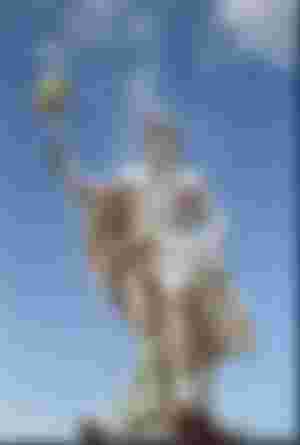
In Arcadia, it was said that Poseidon hid the cunning Ray among the sheep, and that she gave the Crown to swallow the foals instead of the child. Others say that Kron threw Poseidon into the sea because he was prophesied that his son would overthrow him. Ray took Poseidon to the island of Rhodes, where he was raised by the Telchins, who made him a trident. Poseidon later fell in love with Halija, the sister of Telhin, who bore him six violent sons and a daughter, Roda. His other youthful love was the beautiful Theophanes, the daughter of King Bizalt. She had numerous beggars, but Poseidon stole a beautiful girl and, in order to escape the pursuers, he transformed himself into a ram, and Theophanes into a sheep. The fruit of their love was a beautiful golden-haired ram, which later transferred Frix to Colchis. In addition to his lawful wife Amphitrite, whose love he won with the help of a dolphin, Poseidon loved many goddesses and mortals, whom he approached in various forms - as a stallion, bird, bull or dolphin. In order to gain the love of the goddess Demeter, Poseidon was transformed into a stallion and in that form he impregnated the goddess, who gave birth to his horse Arion and one daughter, whose name no one was allowed to say. Of his numerous mistresses, the most famous are Etra, Amimona, Medusa, Keleno, Hiona, Alopa and Tiro, and of his children - Theseus, Nauplius, Pegasus and Chrysaor, Lik and Euripil, Pelia and Neleus, Eumolpus and Hypotontus. His legitimate son is Triton. Poseidon is also the father of giants and heroes who were the progenitors of mythical peoples or royal lineages: the Cyclops Polyphemus, Otto, Ephialtes and Nausitoi. When Odysseus blinded Polyphemus, Poseidon persecuted the hero with his hatred and prevented him from returning to his homeland.
Poseidon often clashed with the gods over supremacy over certain cities and areas. He argued with Athena over the Athenian Acropolis and the region of Trezene (picture below), with Hera - around Argos, with Helium - around Acrocorinth, with Zeus - around Aegina, and with Dionysus - around Naxos. Poseidon was unlucky in those disputes, because the judges almost always gave priority to his rivals.
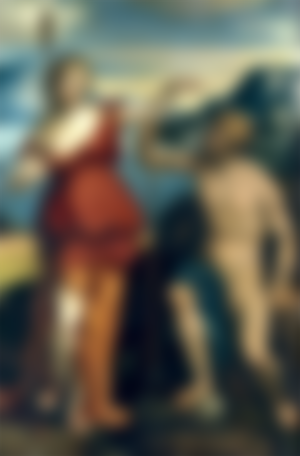
In myth and cult, Poseidon is associated with the horse. It is said that he created the first Scythian horse, by hitting a rock with a trident, or that the animal was created by the earth when Poseidon's seed fell on it. Poseidon is also a horse tamer and protector of knightly competitions with horses; to many heroes - Pelops, Peleus, Ida, Adrastus - Poseidon gave divine horses. As the god of the sea, in myth and cult, Poseidon is often associated with the bull, which symbolizes the roar of the waves. According to one legend, he created a bull and often sent that animal to punish his enemies and other criminals.
Poseidon shook the earth; its occurrence often causes disasters and earthquakes. During the Trojan War, when the gods entered the fight, Poseidon shook Troas so strongly that Hades feared that the earth would collapse and that sunlight would reach his dark and wet kingdom.
Poseidon is an ancient deity, who has long been revered on the Greek mainland, especially in the Peloponnese (Sparta, Tenar, Telpus, Istam, Mantinea). Tables with a linear letter from Pila, the capital of Poseidon's son Neleus, show that Poseidon was revered there during the Mycenaean culture as the main deity and that rich sacrifices were made to him. Poseidon was originally the god of inland waters, the creator of numerous springs, closely related to the humidity of the earth and its fertility. He is the nurturer and fertilizer of plants (Phytalmios), the tamer and master of horses (Hippios), the mighty earthquake (Gaiaochos), the protector against earthquakes (Asphalios) and the mighty lord of the sea (Pelagios). Poseidon is the protector of fishing and navigation, the founder of cities and the ancestor of many tribes and peoples. Most often, bulls and horses are sacrificed to him, by throwing them into the water. The eighth day of the month is dedicated to him. In his honor, Isthmian games were celebrated on Isthmus, near Corinth, which consisted of car racing. Poseidon's attributes are trident, horse and dolphin.
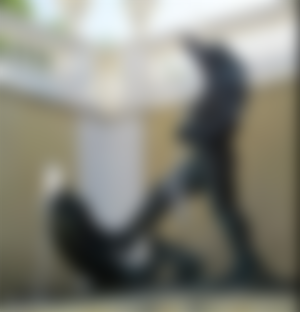
In fine arts, Poseidon is presented as a dignified, mature man, with curly thick hair and a beard. His performances from the archaic age are very similar to those of Zeus; he is shown naked, in motion or in a calm posture, dressed in a long chiton and himation. On ceramic tiles from his sanctuary in Corinth (VI century AD), Poseidon is shown riding a horse or riding in a chariot with Amphitrite. The most famous is the bronze statue of Poseidon, which was taken out of the sea near Cape Artemision (around 460 AD). On the western gable of the Parthenon, the conflict between Poseidon and Athens due to the supremacy over Attica is presented, and on the eastern frieze of that temple, Poseidon is shown next to Apollo and Artemis. Beginning in the 4th century AD, Poseidon is depicted in a characteristic stance, leaning on his right foot, which is laid on a rock, the front of a boat or dolphin, with a trident or a fish in his hands. Only in Hellenistic-Roman art, Poseidon, ie Neptune, was often depicted accompanied by hippocampus, newts, nereids and other inhabitants of the sea.
Literature:
• Dragoslav Srejović - Aleksandrina Cermanović-Kuzmanović, Recnik grčke i rimske mitologije, drugo izdanje, Beograd: Srpska književna zadruga, 1987
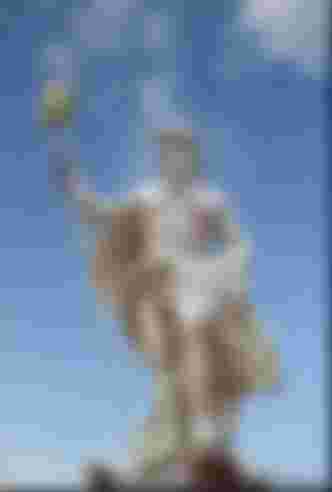

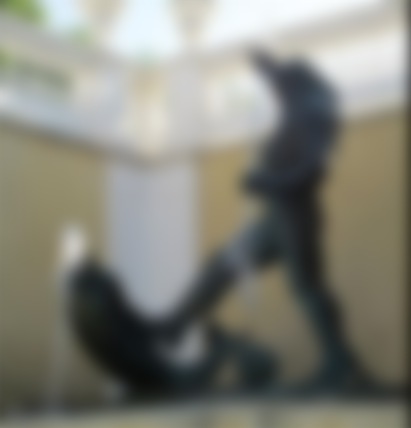
I love reading every one of your articles on metrology. Thank you